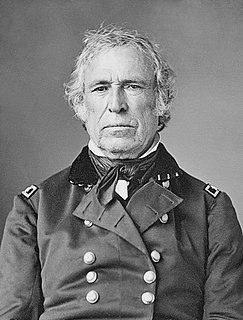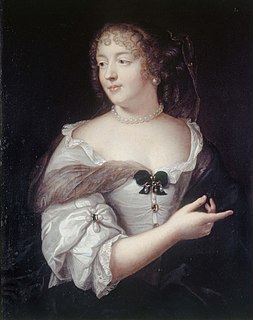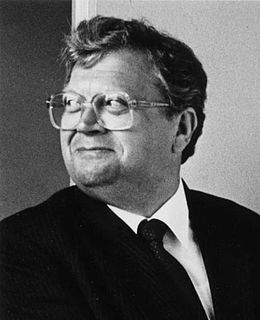A Quote by Zachary Taylor
In conclusion I congratulate you, my fellow-citizens, upon the high state of prosperity to which the goodness of Divine Providence has conducted our common country. Let us invoke a continuance of the same protecting care which has led us from small beginnings to the eminence we this day occupy
Related Quotes
Divine Providence is connected with Divine intellectual influence, and the same beings which are benefited by the latter so as to become intellectual, and to comprehend things comprehensible to rational beings, are also under the control of Divine Providence, which examines all their deeds with a view of rewarding or punishing them. ...the method of which our mind is incapable of understanding.
... Providence conducts us with so much kindness through the different periods of our life, that we scarcely feel the change; our days glide gently and imperceptibly along, like the motion of the hour-hand, which we cannot discover. ... we advance gradually; we are the same to-day as yesterday, and to-morrow as to-day: thus we go on, without perceiving it, which is a miracle of the Providence I adore.
Worship is the highest act of which a person is capable. It not only stretches us beyond all the limits of our finite selves to affirm the divine depth of mystery and holiness in the living and eternal God, but it opens us at the deepest level of our being to an act which unites us most realistically with our fellow people.
Whoso turns his attention to the bitter strifes of these days and seeks a reason for the troubles that vex public and private life must come to the conclusion that a fruitful cause of the evils which now afflict, as well as of those which threaten us, lies in this: that false conclusions concerning divine and human things, which originated in the schools of philosophy, have crept into all the orders of the state, and have been accepted by the common consent of the masses.
Such a man the times have demanded, and such, in the providence of God was given us. But he is gone. Let us strive to deserve, as far as mortals may, the continued care of Divine Providence, trusting that, in future national emergencies, He will not fail to provide us the instruments of safety and security.
Our nuclear free status is a statement of our belief that we and our fellow human beings can build the institutions which will one day allow us all to renounce the weapons of mass destruction. We are a small country and what we can do is limited. But in this as in every other great issue, we have to start somewhere.
Let us not be blind to our differences-but let us also direct attention to our common interests and to the means by which those differences can be resolved. And if we cannot end our differences, at least we can help make the world safe for diversity. For, in the final analysis, our most common link is that we all inhabit this small planet. We all breathe the same air. We all cherish our children's future. And we are all mortal.
The purpose of life seems to be to acquaint a man with himself and whatever science or art or course of action he engages in reacts upon and illuminates the recesses of his own mind. Thus friends seem to be only mirrors to draw out and explain to us ourselves; and that which draws us nearer our fellow man, is, that the deep Heart in one, answers the deep Heart in another, - that we find we have (a common Nature) - one life which runs through all individuals, and which is indeed Divine.
What ever the course of our lives, we should recieve them as the highest gift from the hand of God, in which equally reposed the power to do nothing whatever for us. Indeed, we should accept misfortune not only in thanks, but in infinite gratitude to Providence, which by such means detaches us from an excessive love for Earthly things and elevates our minds to the celestial and divine.
There is a form of eminence which does not depend on fate; it is an air which sets us apart and seems to prtend great things; it is the value which we unconsciously attach to ourselves; it is the quality which wins us deference of others; more than birth, position, or ability, it gives us ascendance.
Let us, then, take our compass; we are something, and we are not everything. The nature of our existence hides from us the knowledge of first beginnings which are born of the nothing; and the littleness of our being conceals from us the sight of the infinite. Our intellect holds the same position in the world of thought as our body occupies in the expanse of nature.
Since the whole city has one end, it is manifest that education should be one and the same for all, and that it should be public, and not private - not as at present, when every one looks after his own children separately, and gives them separate instruction of the sort which he thinks best; the training in things which are of common interest should be the same for all. Neither must we suppose that any one of the citizens belongs to himself, for they all belong to the state, and are each of them a part of the state, and the care of each part is inseparable from the care of the whole.
Whenever education and refinement carry us away from the common people, they are growing towards selfishness, which is the monster evil of the world. That is true cultivation which gives us sympathy with every form of human life, and enables us to work most successfully for its advancement. Refinement that carries us away from our fellow people is not God's refinement.






























